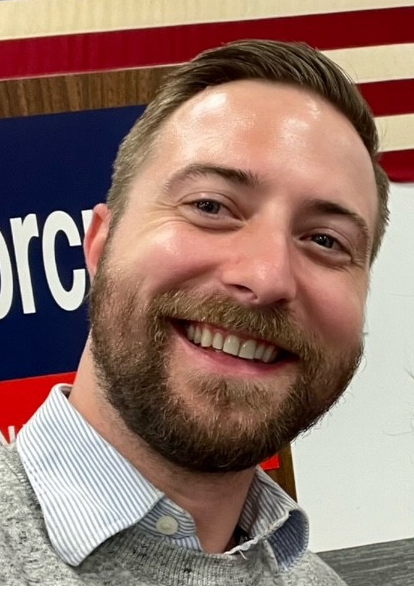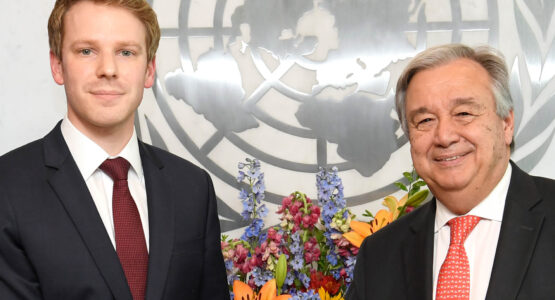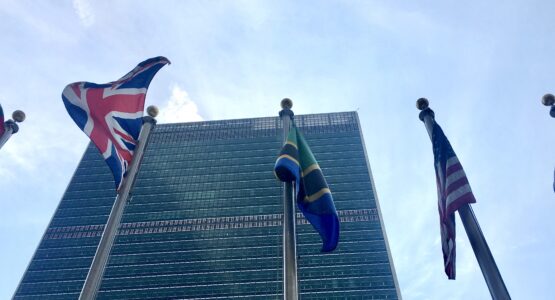Johnian magazine issue 53, autumn 2024
Profile: Britton T Burdick (2016)
Britton T Burdick (2016) is a Communications Director at the U.S. House of Representatives, he advises members of the U.S. Congress and their staff on strategic communications issues, often providing support in the highest profile matters, including complex policy negotiations, legislative introductions, re-election campaigns and crisis situations.
How did you first become interested in politics?
Two political events, one domestic and one international, are responsible for transforming my understanding of politics from something we hear about in the news to something we participate in. The first was the terrorist attacks on 11 September 2001, and the subsequent decision by my nation to go to war.
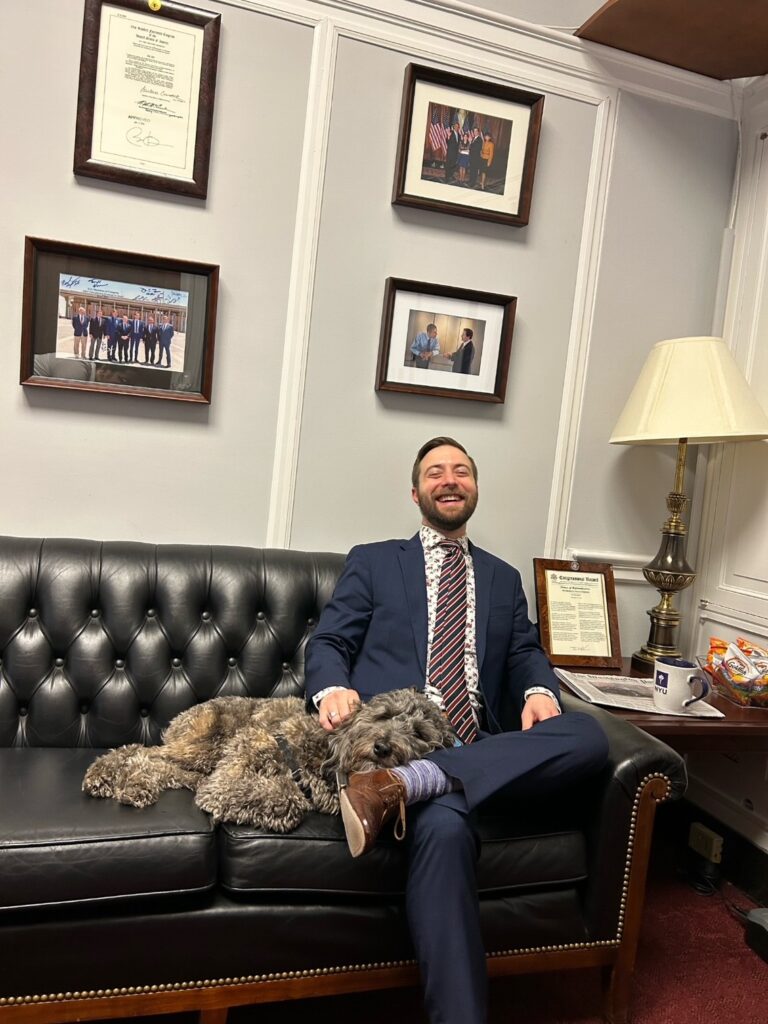
As a young person who had no recollection of ever seeing the Twin Towers, the tension in the air on that day in my small agricultural town of Healdsburg, California – some 3,000 miles away from New York City – was palpable. My generation became the generation that lived through those attacks and saw the aftermath: the shock, pain and desperation for revenge; a surge in patriotism, but also in xenophobia and violence. Domestic politics changed and the people at the top of the political hierarchy made decisions that would fundamentally change our country and our place in the world. This experience opened my eyes to the human element of politics, the feedback loop between the national mood and political leaders, and how political will can translate into military force.
The second political event took place around six years later. I read an article in the local paper about the Saffron Revolution in Myanmar. It was a despairing report about the pro-democracy movement being crushed by the military junta. The protestors had asked for international intervention, and yet none came. It seemed to me so strange that such a small nation could be so cruel to its own people and that powerful nations could turn a blind eye. With the War on Terror still raging in the background, it seemed not entirely farfetched that a powerful nation might accept the invitation to bully the junta into behaving better. This probably reads as naïve, and I suppose it was. This earnest questioning set the trajectory of my academic career and cemented my interest in international relations and politics.
Years later, my time at St John’s culminated in a thesis entitled ‘A Critique of Liberal Internationalism as It Relates to Humanitarian Crises,’ which argues for a new approach to humanitarian intervention (or the use of military force on humanitarian grounds).
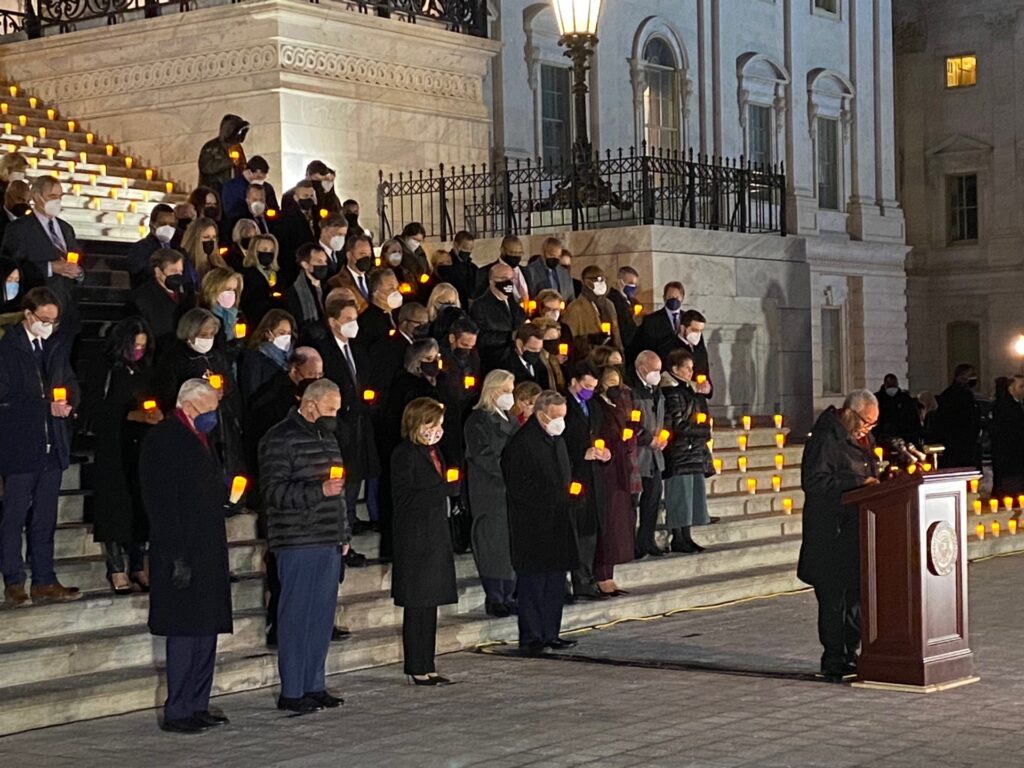
What led you to where you are today?
I was reading for my MPhil at Cambridge when a certain reality TV personality was elected president of the United States. Initially, I thought I would end up getting a PhD after my MPhil and remaining in academia as a political scientist. I absolutely love to read, research, analyse and synthesise information. Continuing my higher education seemed like the natural course. And yet… I had this feeling that I needed to be involved. I needed to participate in politics, not just think about them from afar.
By the time I handed in my thesis at Cambridge, I had made up my mind: I would fly home without a job lined up, find my way onto a political campaign and go from there. And that is what I did. I first joined a congressional race in Southern California and once that concluded I moved to Arizona to work on a senatorial race. All campaigns end, of course, in either defeat or victory (I got to experience both), and then rent is due and you realise it would be nice to have a steady job that offers things like weekends off, health care, vacation days – the little things that do not exist on the campaign trail in America.
So, I moved to the political centre of gravity, my nation’s capital, where I worked at a bipartisan strategic communications and lobbying firm for three years. The firm was full of former congressional staffers, and that network acted as a springboard once I decided I wanted to make the leap to working on Capitol Hill.
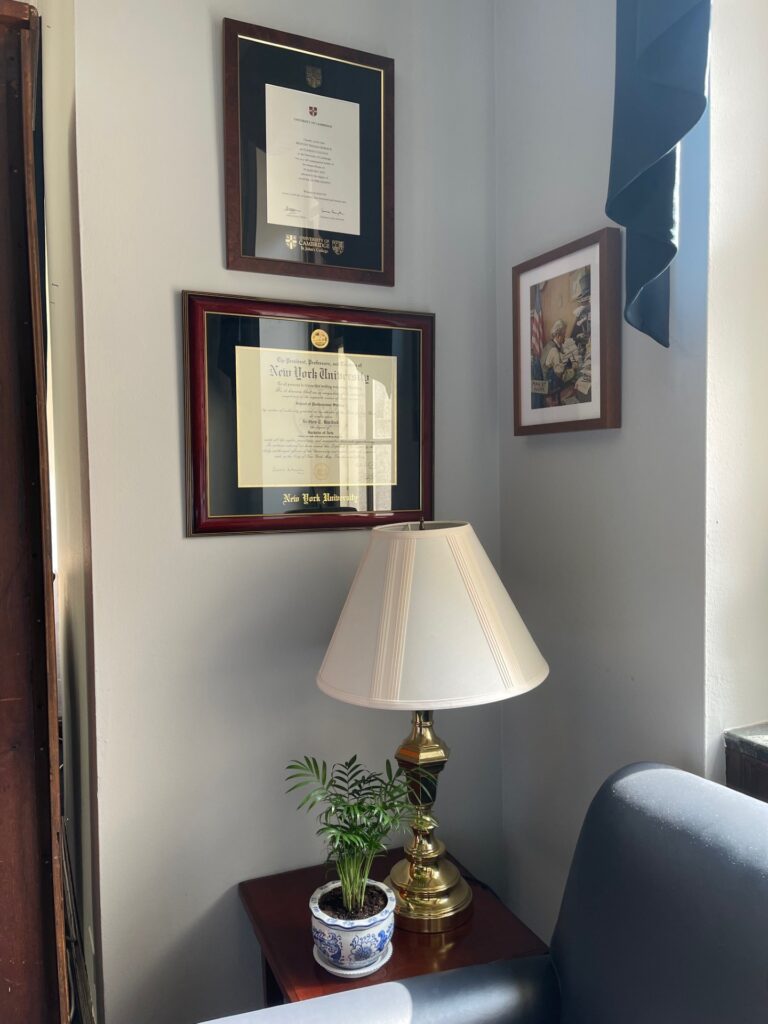
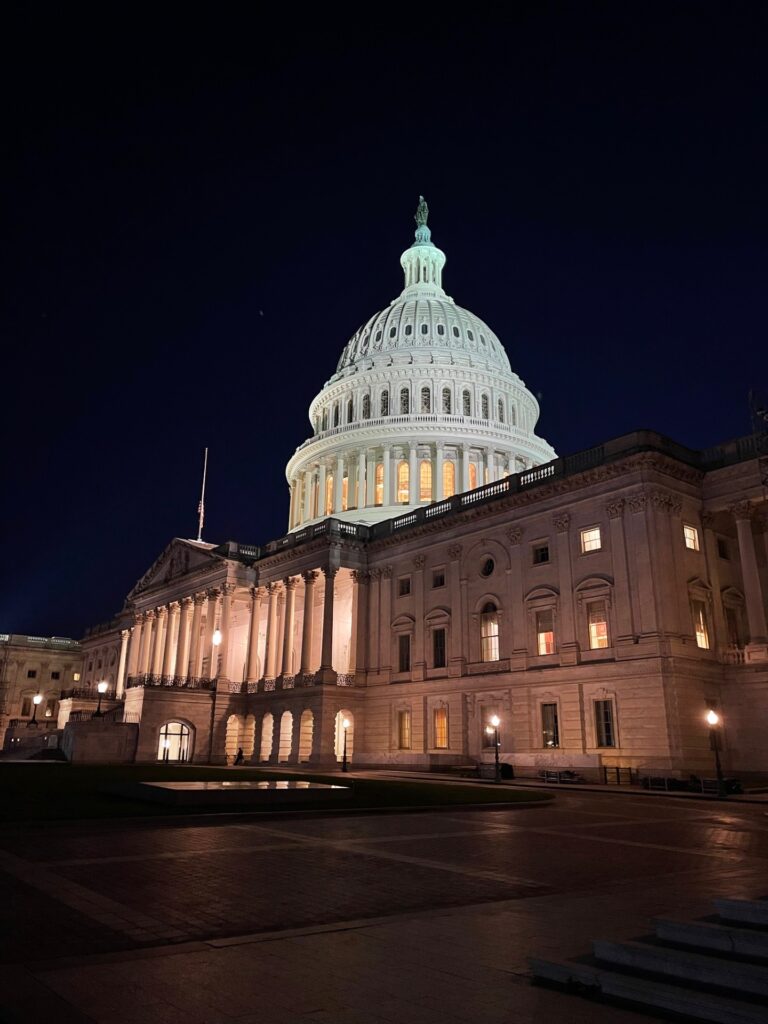
What is it like working as a Communications Director in the U.S. House of Representatives?
I often describe the U.S. House of Representatives, especially to my Senate counterparts who are more accustomed to the staid environs of the upper chamber, as the Wild West. There are weeks when nothing appears to happen and days when years fly by. Each office, of which there are 435, is its own fiefdom. Its operations heavily depend on the personality of the congressperson and their chief of staff. Ultimately, the job of a director of communications is to learn the congressperson’s priorities, devise a communications strategy to help achieve those goals and chip away at it day after day.
In practical terms this involves a lot of reading (you always need to know what’s happening in the news), writing (speeches, press releases, scripts for videos, social media and web content), and outreach (to reporters, to other congressional staff, to opposition counterparts, to stakeholder groups, to constituents). You also need to be discreet and have sound political instincts. Judging when to say what, and which developing stories are opportunities to leverage or potential problems to avoid, is a large part of the job. Depending on the office, you may have junior staff to help execute all of this, but many House offices rely on the vim and vigour of a single communications staffer.

What does a typical day look like for you?
No day is exactly alike, which is equally exhausting and exhilarating. If the committee is exercising its oversight powers and holding a hearing, there will be plenty of preparation. I will work with the legislative staff to identify the policies or issues most relevant to the hearing, situate those issues within the broader context of the legislative session, identify political liabilities and opportunities, and use that information to craft opening statements, questions for witnesses and social media content to execute our short-term communications strategy in a way that supports our long-term strategic goals. There is also usually a decent amount of media outreach to get information to journalists reporting on the hearing. On the day of the hearing itself, I will meet with the congressperson to ensure their remarks are in place and manage the logistics for streaming the hearing online, promoting it on social platforms and ensuring photographs of the hearing get taken.
When we aren’t having a hearing, which is most days, there may be any number of irons in the fire. No day would be complete if it did not start with consuming the day’s news – a myriad of newsletters, trade publications, Beltway rags, radio and TV segments, and legacy media. I will generally have a few meetings with senior staff to check-in on ongoing projects or upcoming events, and to get briefed on the latest policy negotiations. There are usually talking points to write, memos to draft, speeches to get approved and fact sheets that need designing. As the official spokesperson for the Committee, there are also lots of conversations to be had with reporters – about rumours they’ve heard, upcoming legislation, important negotiation developments, or correcting the record on stories that might not be painting the full picture.
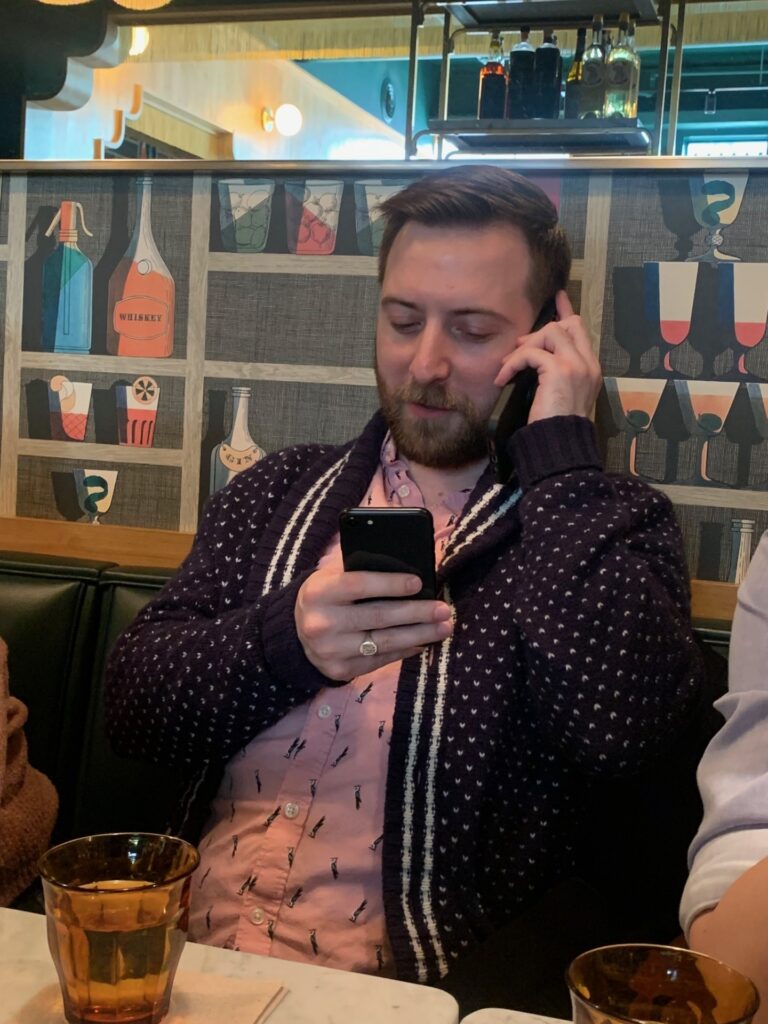

How do you go about negotiating policy?
My first boss in Congress was a union electrician before he was elected to office. He worked his way up in the union and became a business agent – the union representative who negotiates labour contracts with employers. He sat across the table from management and their lawyers and negotiated for safer work conditions, better benefits, higher pay. He told me, ‘Negotiation boils down to two things: leverage and trust.’ When you’re negotiating policy, you need to be aware of what your leverage is (if you have any at all) and how much you trust your counterpart, and what you can do to increase their trust in you. It doesn’t matter how great your policy idea is, it doesn’t matter how strong your convictions are, it doesn’t matter how morally superior your argument is. If you don’t have leverage or trust in the room with you, chances are you’re going to walk out with no deal or worse – a bad deal.

That’s something I try to remember and try to instil in others when we’re engaging in negotiations. Practically, that involves being an honest broker, conducting yourself in good faith and remembering the human on the other side of the conversation. At the end of the day, the better we understand one another the better the outcome, because that understanding breeds empathy and once you can understand each other’s perspective, even if you don’t necessarily agree, you can create a space where leverage is tactfully applied, trust is built and deals can be made.
Do you think this has become harder recently at a time of increasing political polarisation?
It has absolutely become harder to find common ground and make deals happen in today’s political climate. Certain stringent ideologies have taken hold of political factions, and those ideologies do not reward or incentivise bipartisanship. We have seen this play out several times in the 118th Congress, with infighting and backbiting among a particular party resulting in scuttled legislation that would have otherwise passed on a bipartisan basis. This is unhealthy, but it is largely not something that Congress can fix. The remedy for that illness must be provided at the ballot box.
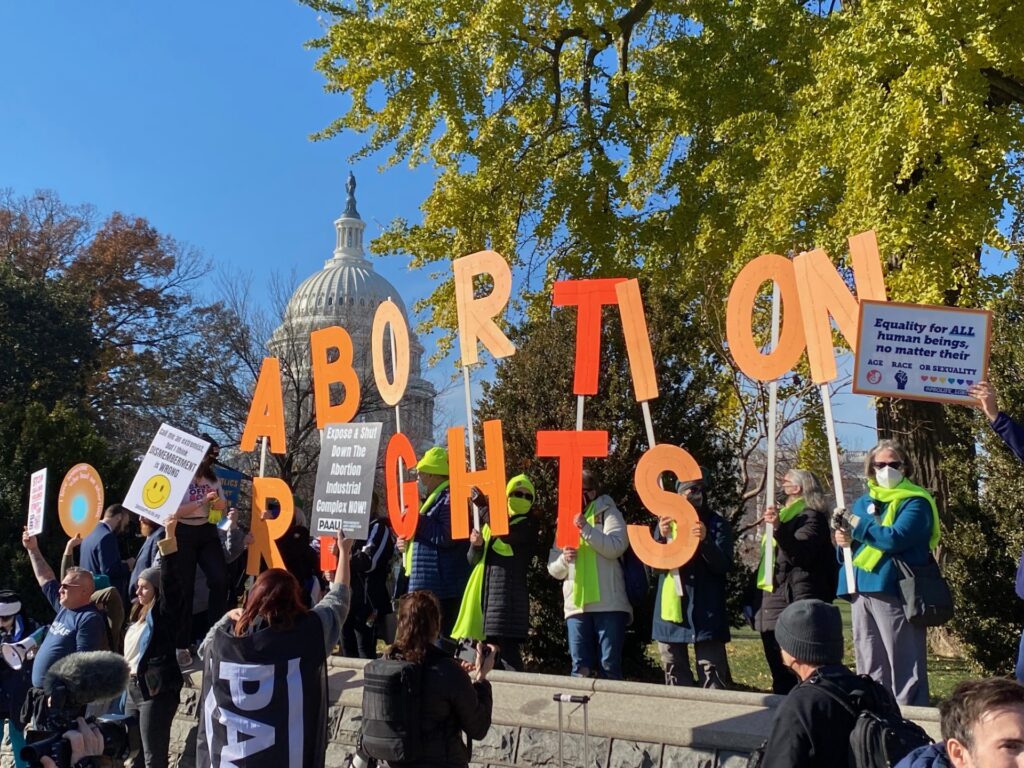
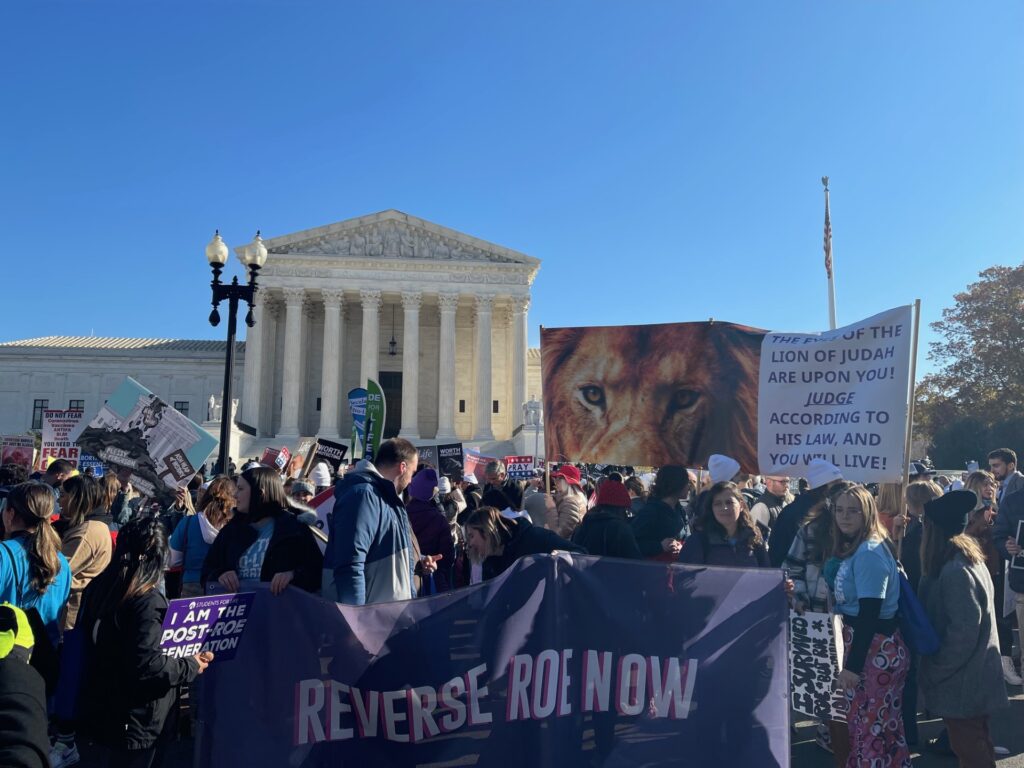
What are the benefits of working with the opposition to find things you can agree on?
I think there is always value in hearing different perspectives and ideas when developing a policy solution to a problem. The most practical benefit of working with the opposition is that the agreements struck are generally more durable. In the U.S. Congress, a bill needs to be able to pass in the House and in the Senate before it gets to the President’s desk and signed into law. You need to think about how it can fare in each of those legislative chambers and then how it will be received by the executive.
Ensuring your policy is palatable enough to the opposition that it can gain a broad spectrum of bipartisan support is the best way to see your bill become law and remain there. Wholly partisan legislation might be successful if the stars align, and you have large enough majorities in both chambers and hold the White House, but it can also become an easy target the moment the political tides turn and the opposition comes into the majority.
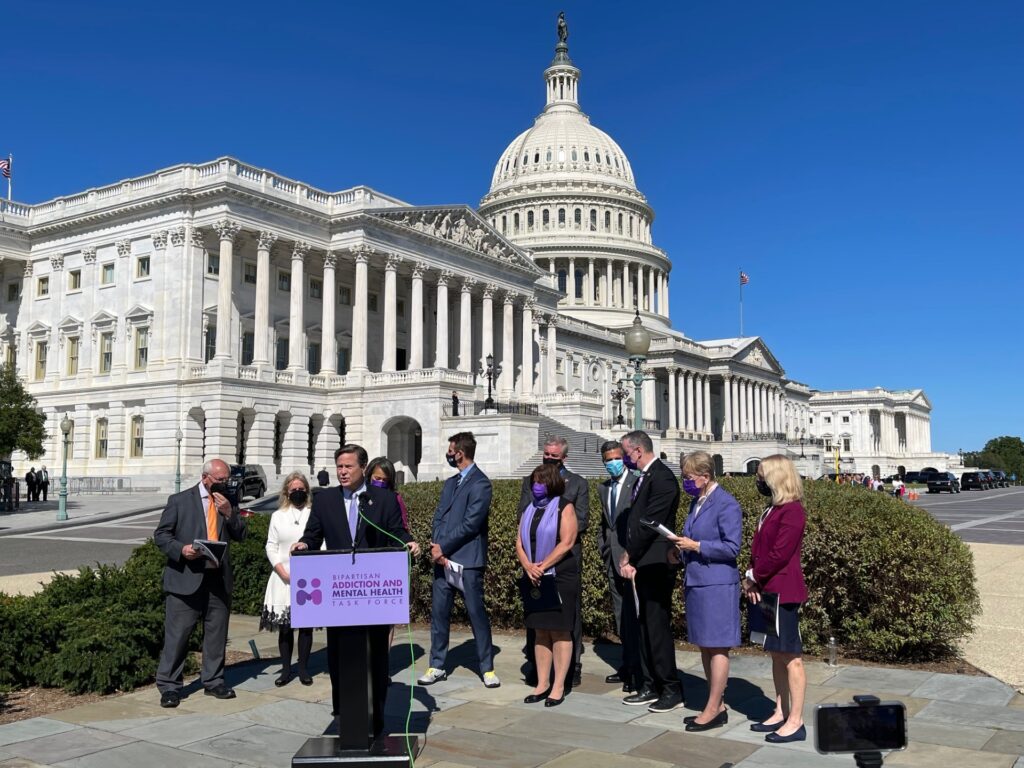
Where do you hope your career will take you?
I feel very fortunate that I get to do what I do. Growing up, jobs were what adults had to keep food on the table and a roof over our head. I don’t recall there ever being talk around the dinner table about how exciting going to work was. Now, I get out of bed every day, excited to go to the office. Excited for the challenge, the opportunity to learn new things and acquire new skills, to do work I feel is important. Wherever I go next, it will have to be a challenge and personally fulfilling. My parents didn’t work as hard as they did for me to pursue anything less. My mentors in school and life didn’t expend time and energy on me for me to be satisfied with the status quo; they always encouraged me to stretch my wings and go further. Politics is a fascinating arena to work in, but you never know where life will take you.
Written by
Britton studied Political Science at New York University before undertaking an MPhil in International Relations and Politics at St John’s. Following a few political communications jobs after graduation, Britton is now the Communications Director for the House Agriculture Committee at the U.S. House of Representatives.


